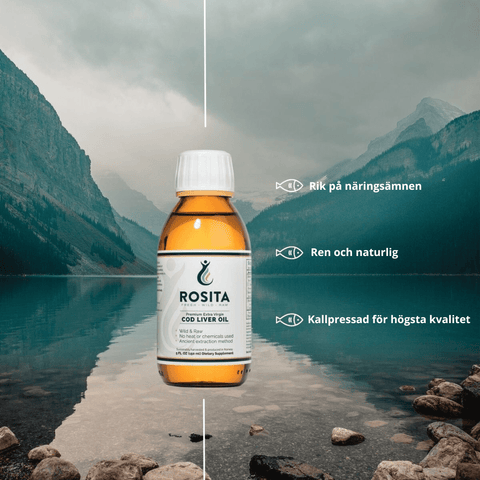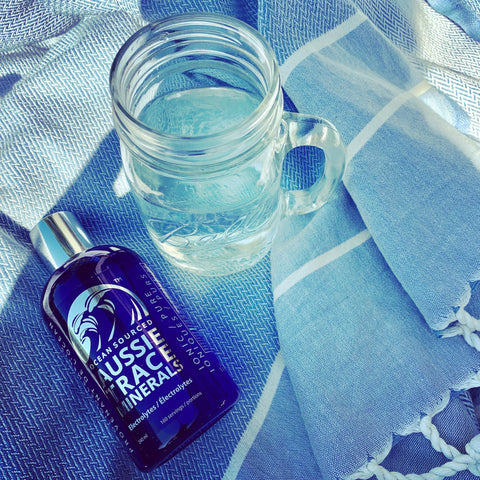We often hear that we need more omega-3 oils in our diet, and that it can be difficult to get enough of them through food. But which omega-3 oils are the best? And what does the raw material and manufacturing method mean for the quality of the product?
Here we clarify some concepts regarding fish and cod liver oil.
First of all: what is fish or cod liver oil good for?
Many people take them to increase their intake of omega-3 oils. The fatty acids EPA and DHA support normal heart function, DHA supports the maintenance of normal brain function and vision. The fatty acids act, among other things, by making viscous blood more fluid and supporting the function of cell membranes in releasing substances into and out of the cell.
Fish oil and cod liver oil are two completely different products.
• Fish oil consists of pressed fish meat from the whole fish
• Cod liver oil is oil (often from cod) from the liver of fish.
When it comes to both categories, it is important to know the product's raw material, manufacturing method, and how it is tested for environmental toxins and other impurities.
What are the differences between fish oil vs. cod liver oil?
Cod liver oil provides a full spectrum of nutrients that interact and enhance each other's effects:
- In addition to the omega 3 fatty acids EPA and DHA, it contains several other beneficial fatty acids such as DPA and other anti-inflammatory signaling molecules.
Cod liver oil also contains:
- easily absorbable form of vitamin D
- Vitamin A interacting with vitamin D
- the trace element copper, in a low dose and bound in such a form that the cells can use it to protect us against excess oxidation and optimize energy production in the cells.
Cod liver oil is a complete package of combined nutrition, in naturally balanced amounts. Many people (especially those who have made sure to get sun and daylight during the days throughout the summer months) rely on cod liver oil in the winter when it comes to vitamin D intake.
For high quality cod liver oil, you should:
- the fish were caught in clean, cold waters
- the fish livers are treated gently and are not pressed, heated or steamed
- the raw material is handled immediately after capture
- The manufacturer must test for heavy metals and environmental toxins and report the test results openly. Of course, the levels should be low, below the approved levels.
Fish oil is an extracted product, which only contains certain fatty acids.
To get an extra high content of omega 3, fish oils can be artificially altered. Many people want to avoid such single, unbalanced high doses of polyunsaturated fatty acids, due to the ability of polyunsaturated fatty acids to oxidize if they are not counteracted by sufficient antioxidant substances.
To watch out for
Both fish oils and fish liver oils can be extracted with heat. Polyunsaturated fatty acids have the property that they react very easily with oxygen, i.e. chemically oxidize, especially in contact with heat, oxygen or light.
To ensure that a quality fatty acid product is not oxidized even before you start using it, it should not be mechanically pressed in such a way that heat is generated, heated or steamed.
Environment and history
With an evolutionary approach to nutrition and health, many believe that wholefood supplements are safer to take. A concentrate of nutrients that has retained all of its original parts in balance with each other, gives the body better conditions to metabolize and use the nutrients in it optimally.





